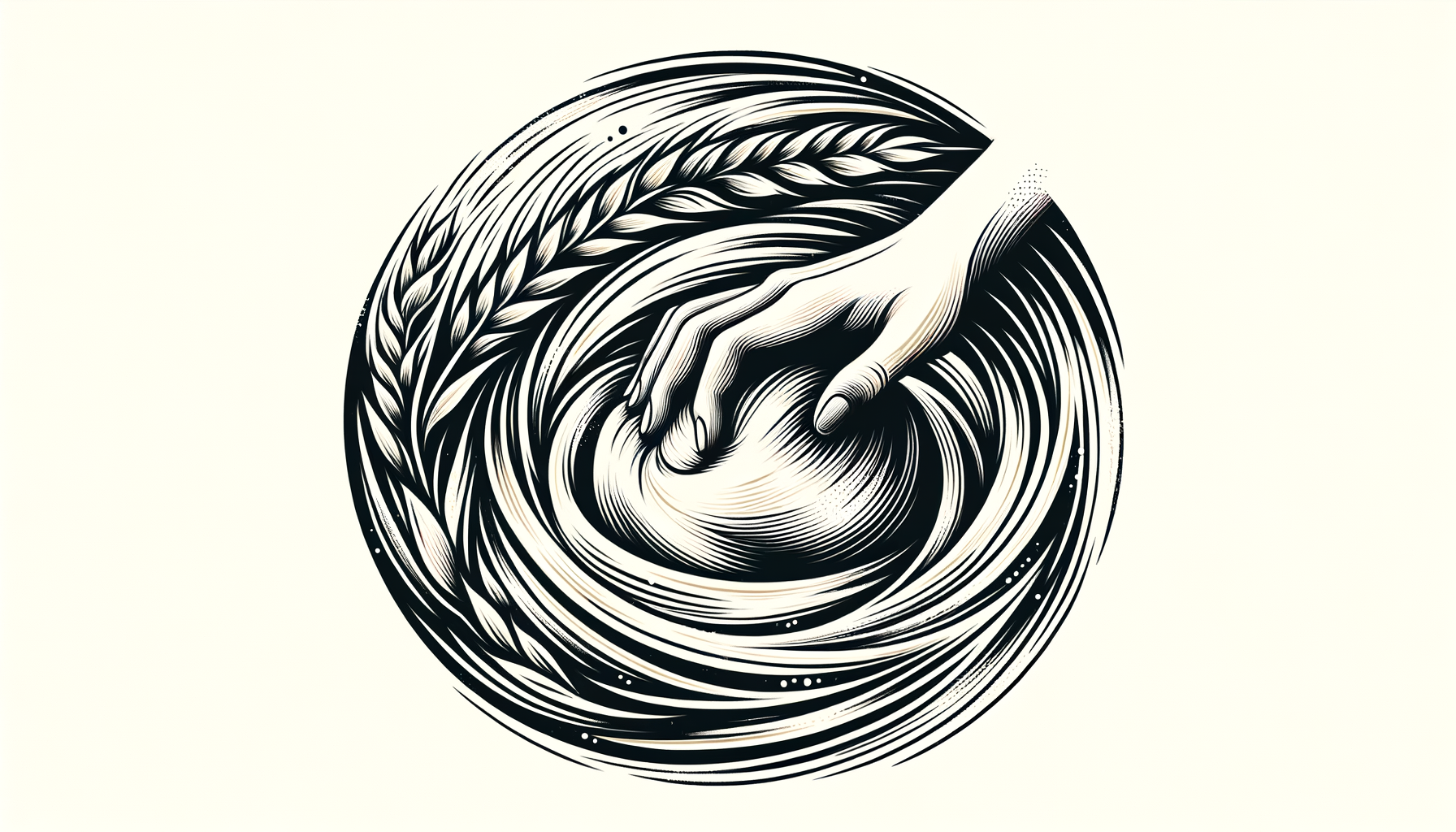It happened on a Tuesday. Perhaps fate reserves its strangest gifts for the most ordinary days. I was elbow-deep in olive oil and flour, kneading dough in the small kitchen of my family’s tavern in Athens when my aunt stormed in, brandishing a spatula like a war hero returning from battle.
“Dimitri,” she declared, eyes ablaze, “you’re doing it wrong. The secret to good bread is in the kneading, yes, but also in how you feel.”
To an 18-year-old with a head full of anything but dough philosophy, this sounded absurd.
“Bread doesn’t care how I feel,” I replied drily, “it just rises.”
But Aunt Eleni, an unwavering disciple of Greek kitchen wisdom, wasn’t having it. She wiped her hands, leaned in with the intensity of a coach at halftime, and said something I didn’t understand until years later—not about bread, as it turned out, but about life and relationships: “Anything worth making takes your whole heart.”
Let’s just say my bread that day was, at best, mediocre.
Fast forward two decades, and while I’ve managed to knead my way to edible ciabatta, it’s Aunt Eleni’s advice that has unexpectedly become the cornerstone of how I approach connecting with people—and yes, how I’ve approached love.
Here’s why bread dough—and my aunt’s impractical kitchen sermon—have turned out to be my most unexpected inspiration.
The Kneading Process: How Relationships Are Born
Kneading dough is messy. Flour goes everywhere, your arms ache, and often, you’re not sure you’re doing it quite right—especially when the lump in front of you looks less like future bread and more like sadness in flour form. The same can be said for relationships, whether romantic or platonic.
- That first spark of attraction? Like creating a starter for sourdough—it needs the right conditions and just a pinch of stirring.
- Chemistry? Great, but it won’t get you far unless you actually do the work.
- And patience? Oh, we’re talking baker-level patience here. Not croissant-baking patience, but still.
I made the mistake of rushing into love a few times, hoping the “ingredients” would basically mix themselves together if I just shook the bowl enthusiastically enough. Spoiler alert: they didn’t. Real connection—whether with yourself or another—takes slow, steady effort, folding in that vulnerability over and over until it becomes something real.
But why is this so easy to forget? Probably because relationships, much like baking, don’t come with a foolproof manual. They come, instead, with missteps: burns, collapses, and the occasional panic over why something is expanding so much outside of the bowl (or outside of comfort zones). The point, though, is to keep kneading anyway.
Fermentation Time: Space? It’s Crucial.
If life has taught me anything, it’s that you cannot rush the process. Leaving dough to rest and ferment feels counterintuitive at first—you’re doing nothing. It just sits there, looking smug in the bowl. But that’s where the magic happens; it’s in the space provided that the ingredients start to fuse and expand.
In relationships, letting things breathe is just as vital. I learned this lesson the hard way on a summer in Santorini, where free-flowing wine and endless sunsets convinced me (wrongly) that rushing romance was always a shortcut to love. I dove in headfirst, committed to a whirlwind fling that felt like the opening scene of a Nicholas Sparks movie—but without the emotional soundtrack.
By the time the relationship deflated a few weeks later, I realized what had gone wrong. Neither of us had given the connection time to breathe into itself; we forced something to rise faster than it could handle. Bread demands rest to mature into fullness. Love demands the same.
The Crust: Why the Tough Stuff Matters
Can I let you in on an arguably unpopular opinion? The crust—the hard exterior we’re so quick to cut away—is where the magic happens. Allow me a metaphor: The conversations that make you uncomfortable, the moment when someone challenges you, or when perspective collides with your ego? That’s the crust in love. Yes, it can be tough to get through. And yes, it’s worth it every time.
When I ran my hotel on Crete, I had the good fortune of hosting guests from practically every corner of the world. Among them was a couple from Sweden who spent every breakfast bickering over—wait for it—the correct way to slice tomatoes. They disagreed on almost everything, from travel plans to what made a proper Greek salad. Yet, when the husband spoke about her in passing, his eyes shone with a warmth I’d only seen in fairy tales. “She teaches me patience,” he said. “We don’t always agree, but it’s how we listen that really builds us.”
His words stuck with me. Relationships aren’t good despite challenges; they’re meaningful because of them. A burned crust isn’t failure—it’s character.
Breaking Bread: Connection in the Small Moments
Here’s the funny thing about bread—it’s never just bread. In Greece, a simple loaf holds stories: a late-night bonding session with a sibling, an olive oil discovery shared over laughs, the quiet reassurance of fresh slices waiting on the table after an argument. Sharing bread—and by extension, time—has reminded me that the grand gestures in relationships only hit home because the little ones stitch them together.
There’s something poetic about dipping bread into a shared dish with someone you care about. It’s less about the food and more about the communion; the way simple rituals build emotional closeness. (Pro-tip: Always eat the bread. No one falls in love over untouched carbs. It’s borderline rude.)
For years, I viewed connection as a series of fireworks—dramatic, fleeting chemistry. What dough-making taught me is that it’s more often like a seeded loaf: rich in imperfections, comforting, satisfying in its depth.
The Lesson in the Loaf
Whenever I catch myself rushing—whether into excitement, decisions, or new encounters—I think back to that moment in the kitchen with my aunt, her flour-smudged hands pointing at my overly kneaded dough. “Anything worth making takes your whole heart,” she said.
Love and connection aren’t about throwing ingredients into a mixing bowl and hoping for the best. They’re about showing up fully while knowing when to step back. They’re about savoring the process rather than hyper-focusing on the outcome. And they’re about embracing the bread crust and all because perfection is never the goal—presence is.
So, next time you find yourself doubting the recipe for love—or life—maybe just take a gentler approach. Start somewhere small: share a slice, share a laugh, or simply show up fully for whoever’s at the table with you. And most importantly, don’t forget the olive oil.
Because, as my Aunt Eleni reminded me once with the wisdom of a woman who truly understood bread and people, “You can get by without almost anything in this life—but never without good bread and better company.”
Now, knead that as you will.




















